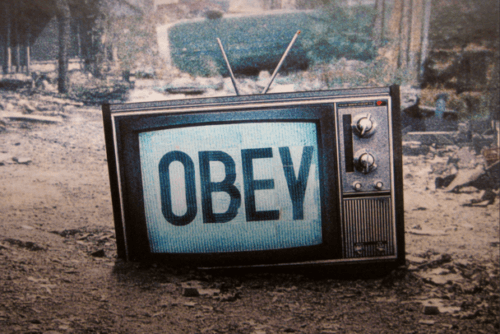There’s no shortage of anti-capitalist films. But there aren’t many that manage to both present a strong message and perform well critically and financially.
Let’s take a look at 5 anti-capitalist films that did it all. They present coherent messages that explain some aspect of our world, they were good movies, and they made money at the box office.
5 Successful Anti-Capitalist Films
1. Trading Places (1983)
In theory, this is an 80s dark comedy. But in fact it’s much more than that. Eddie Murphy plays a homeless man who switches social roles with a commodity broker. He has no trouble using his skills to work the corporate hierarchy, and only racism holds him back. As it turns out, this is a movie about the disconnect between our talents and the roles society assigns to us.
2. They Live (1988)
What could be better than Roddy Piper finding a pair of sunglasses that reveals the hidden messages society delivers to us? Sure, the US has been taken over by aliens in this movie. But, really, it’s about corporate propaganda. And what we imbibe without thinking about it.
3. Roger and Me (1989)
Watching this one in 2019, you really have to set aside Michael Moore’s more recent movies. This one is Moore doing his shtick, yes. But it works here. Moore clearly lays out the negative impact of General Motors on Flint and the regional economy. And he captures what it’s like to be a working-class person going through downsizing and layoffs.
4. Pan’s Labyrinth (2006)
Sure, it’s a fairy tale. And, yes, most of it is set within the magical world. But I see the entire fairy tale component as a young girl’s way of dealing with life in fascist Spain. If you think of it like that, this is really a movie about a band of anti-fascist rebels making its last stand. As a result, I think this is a timely movie for thinking about current events.
5. Sorry to Bother You (2018)
As far as looking at racialized capitalism goes, this is probably the best popular movie. Boots Riley effectively shows how black Americans are expected to adapt to a white world, particularly when Cassius ‘uses his white voice’ to succeed as a telemarketer. And the company WorryFree presents a future life and work that looks eerily like a dystopian universal basic income. I’m not really into the whole horse-people thing, but whatever. It works.
Honorable Mentions
There are a lot of great movies with anti-capitalist elements that aren’t really anti-capitalist films. They’re about something else first. I might cite Do the Right Thing (1989), which has an anti-capitalist feel. But it’s centrally about racism and police brutality in a gentrifying Brooklyn neighborhood, and it zooms in on that aspect. I might also cite Y Tu Mamá También (2002), which is a coming-of-age story against a backdrop of sexual exploration and leftist politics.
Both are anti-capitalist films to one degree or another, but they’re different kinds of films first.
I’ve also set aside The Grapes of Wrath (1940). I mean, it’s such a classic that (hopefully) all of you already know about it. And so I wanted to save space for other films.
But here are some additional anti-capitalist films worth seeing.
Hoop Dreams (1994) (topic: racialized sports exploitation)
American Psycho (2000) (topic: corporate vanity and mental illness under capitalism)
Syriana (2005) (topic: imperialism and oil)
District 9 (2009) (topic: segregation and xenophobia)
Snowpiercer (2013) (topic: revolution and climate change)
12 Years a Slave (2013) (topic: the terrors of slavery)
The Hunger Games: Mockingjay Part 1 (2014) (topic: revolution and propaganda)
(Dis)honorable Mention
Capitalism: A Love Story (2009)
This movie was, of course, Michael Moore’s most explicitly anti-capitalist film. And probably the most influential explicitly anti-capitalist film ever made. But it actually can’t make this list.
Why?
It wasn’t financially successful. It grossed $17 million on a $20 million budget. The film was a flop. This is actually a regular occurrence for Moore. He has released 3 flops in a row, and 4 of his 8 feature-length films have been flops. Of course, the other 4 were some of the most successful documentaries of all-time (including Fahrenheit 9/11, which made more money than any documentary in history).
As it happens, it’s common for great anti-capitalist films (or great films with anti-capitalist components) to flop. See also: Metropolis (1927), Modern Times (1936), Reds (1981), Blade Runner (1982), Brazil (1985), Glengarry Glen Ross (1992), Land and Freedom (1995), Office Space (1999), The Interrupters (2011), etc.
